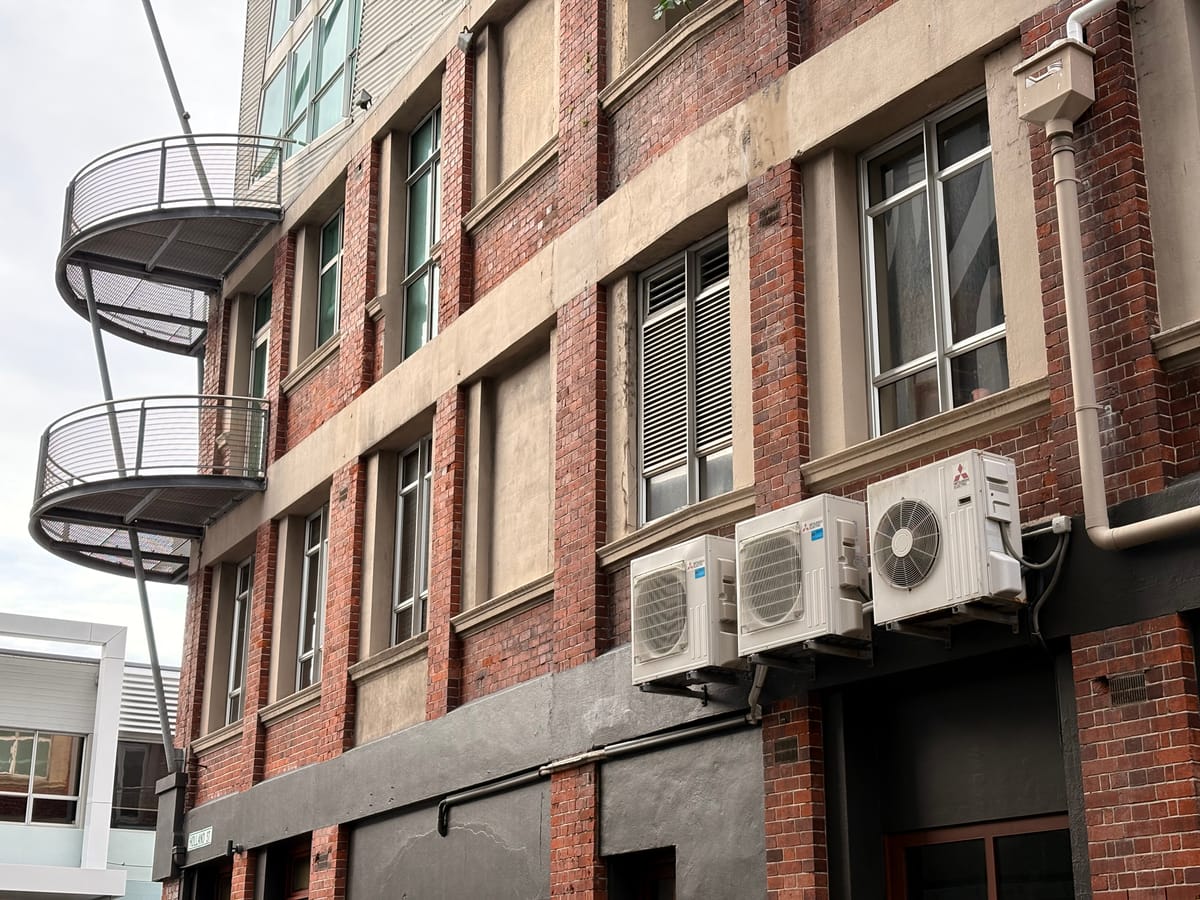The humble heat pump's quiet revolution
Low carbon technology is not just the winning solution to our pollution: it's cheaper and better than fossil fuels.

James le Page’s passion is helping people save money.
As the Product Test Manager for Consumer NZ, his entire job is helping New Zealanders buy reliable, quality products. “Consumer is a legacy brand that has a lot of trust,” he told me.
We were talking because I wanted to ask an expert about some of the incredible technologies we're using to solve climate change.
Low carbon technology is the winning solution to our pollution. Solar panels, home batteries, ebikes, and trains. One technology in these ranks is a subtle climate star: the humble heat pump.
James told me that heat pumps are “not an emerging technology anymore – they’re pretty prevalent in homes across the country.” The tech that efficiently heats and cools our homes is being adopted by Kiwi everywhere. They're choosing to save money without realising they’re also saving the planet.
Heat pumps help us understand why the future is so exciting. Dedicated, smart people have invented low pollution technology that’s cheaper and better than fickle fossil fuels.

Why heat pumps are a miracle
Burning wood in a fireplace or plugging in an electric heater both work by creating heat.
Heat pumps are different: they don’t make heat, they move it. Heat is all around us, so even on a -5°C day, heat pumps can absorb heat from the air and move it into your lounge.
The great thing is you can switch directions too: on an overheating day your heat pump can suck up heat from inside your house and put it outside. It turns your home into a giant fridge.
This magic process is incredibly efficient – nearly four times more efficient than other heat sources like fossil fuel gas.
According to James, heat pumps “are the best heating option for homes in New Zealand.” He and his team have created a fantastic buyers guide to find the best option for each person.
James explained that heat pumps are a far more comfortable experience. Plug-in electric heaters “do a really good job, but the heat that comes off is hotter and much drier.” For him, heat pumps are king for comfort.
They’re also cheap. According to Consumer NZ, you can save at least eight thousand dollars over the life of a heat pump compared to a gas heating system.
That's why New Zealanders have been buying heat pumps in droves. Back in 2004 just over 38,000 heat pumps were sold. Two decades later, Kiwi are consistently buying 200,000+ a year.
Heat pumps save money, provide a better experience, and also create around 90% less pollution than a gas system. Seriously.
That means the future where we stop polluting the world is also a future where we spend less money on staying warm and dry.
The cost of fossil fuelled heating is rising and will continue to rise. Because you can’t install a personal gas field on your roof, people who choose gas have to be connected to its network. That network costs lots to maintain.
As more Kiwi switch away from gas, a shrinking number of households are paying more to maintain the network. This cost spiral is already happening: if you want to save money, get off gas as soon as possible.
Fossil fuels are gasping their final breaths, and the companies selling them know it. They’re lobbying politicians and creating bullshit sustainability marketing to try to stave off the fact that their energy source is expensive and irrelevant.
Why would people stick with costly energy like oil and gas to heat their home when electric alternatives are better and cheaper?
Surprising uses for heat pumps
Heat pumps have more uses than warming your lounge. They’re what I like to think of as a "platform" technology: something that you can use to solve a bunch of challenges. Batteries are like this: you can use them to power smartphones or SUVs.
One surprising use for heat pumps is making hot water. There are loads of ways we can heat water for showers or our dishwasher. How we choose to do so has a big impact on our wallets.
Gas systems burn fossil fuels to warm the water. Typical electric hot water cylinders work like a giant kettle. Hot water heat pumps heat water like your lounge: by pulling heat from outside and moving it into the water.
According to the Energy Efficiency and Conservation Authority, hot water heat pumps cost less than a third of what it costs to run a gas system. They achieve this while polluting just 15% of what burning gas does. Power it with a solar panel on your roof and you’ll save even more.
James is fascinated by hot water heat pumps: he calls them a “slick piece of kit.” There are even some coming onto the market which can sit outside: a crucial selling point for homes that ditched the hot water cupboard in the 2000s.
While he’s really keen on them, he wishes hot water heat pumps had standardised measurements for efficiency. If we solve that, I wouldn’t be surprised if James wholeheartedly recommends them on Consumer NZ.
The typical new technology problem
Across our economy, electric tech is significantly better than fossil fuels.
James even shouted out induction stovetops: “I was happy using gas… I’ve been blown away by [induction’s] performance. It’s been amazing.” He loves how fast water boils on an induction stove compared to a gas one. “With a hungry child around, it makes a big difference."
The challenge, unfortunately, is upfront cost. Fossil fuel tech, like old cars, are cheap at first but cost a fortune over time. Electric tech is the opposite: costlier to begin but so much cheaper over time.
“That’s the biggest barrier at the moment,” James told me. “If you can afford it, you can save the most money… It’s a big capital cost, and prohibitive in that sense.”
Banks like ANZ offer 1% interest on loans to install heat pumps or buy electric vehicles. Westpac offers these loans with no interest at all for five years.
This is an awesome way to access these magical technologies. I’d love us to go further.
The Government could offer 15 year no interest loans for heat pumps or solar panels, and could require solar panels on rental properties so renters get the same benefits as homeowners.
Electrifying our lives provides benefits for ourselves and our community. Our homes cost less to run, our health workers would treat fewer patients living in damp homes, and the Government would save billions by avoiding future climate disasters.
Fossil fuels are a dinosaur in more ways than one. The era of burning things for energy is coming to its welcome end. The nimble successor to fossil fuels is electric technology like heat pumps.
It is keeping money in our pockets and pollution in the ground. The faster we adopt it, the more we will all thrive.





